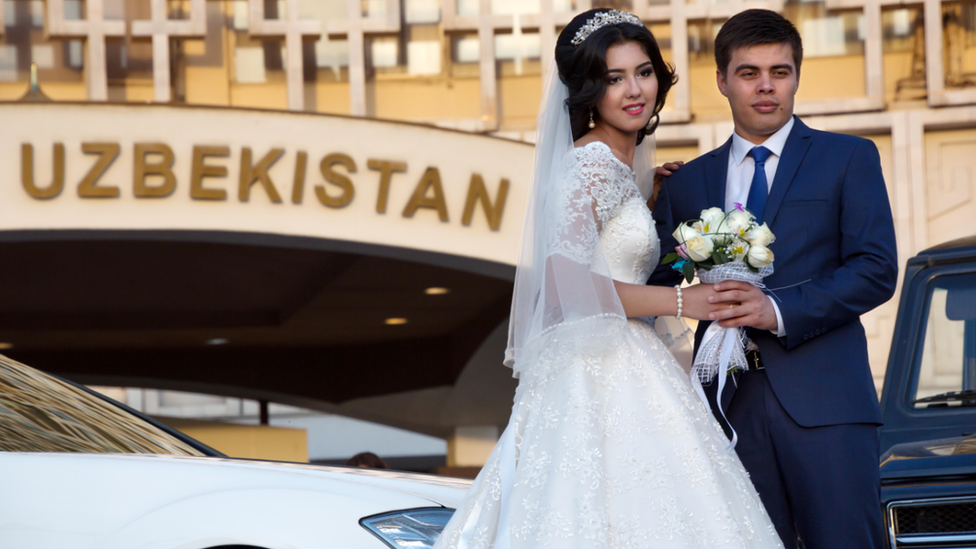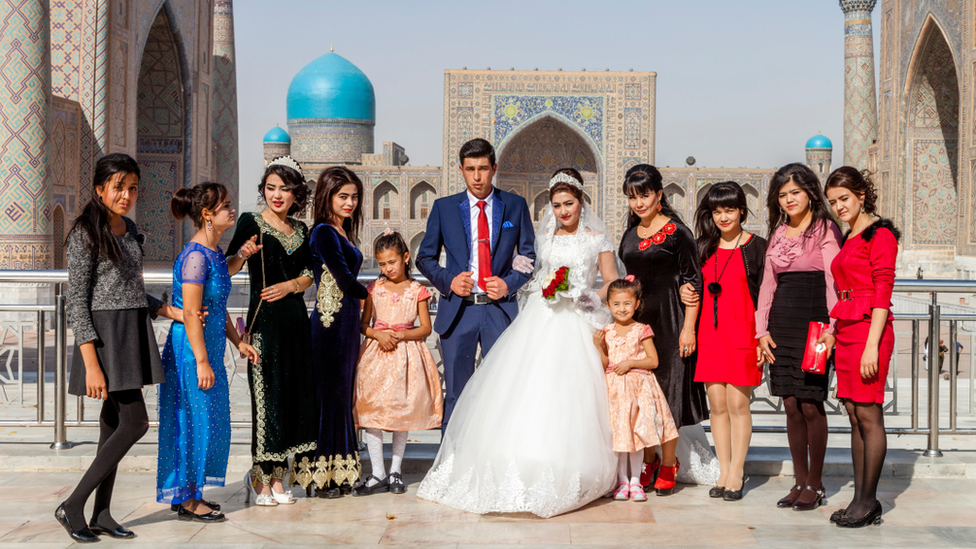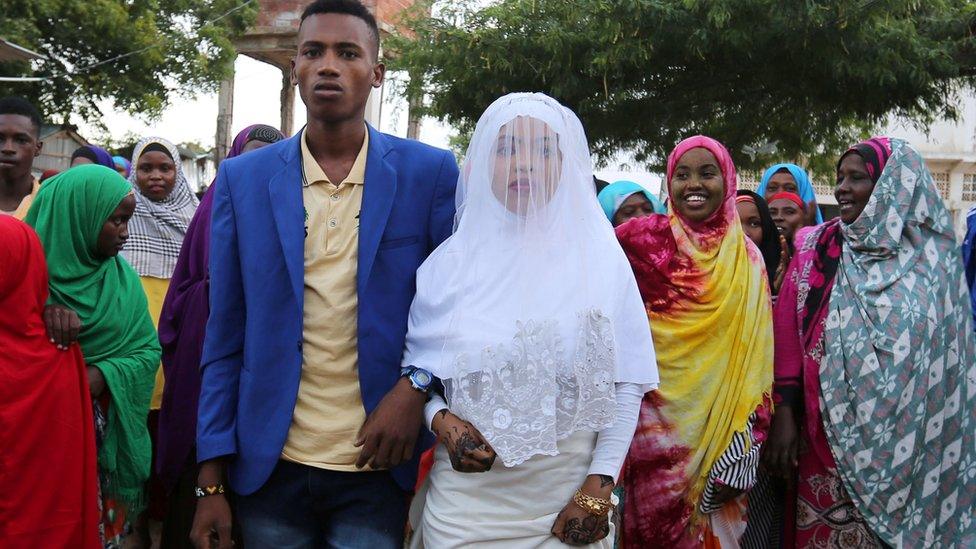Have smaller weddings with less food, Uzbeks told
- Published

There's always someone who will say your wedding plans are OTT, but what if the voice of reason is your president?
A government document proposing radical restrictions, external on weddings has had a mixed response on social media in Uzbekistan.
Guest lists of 400 and motorcades are the norm in the authoritarian Central Asian country where 12.8% live under the poverty line., external
Neighbouring Tajikistan introduced guest list limits in 2011.
The proposed curbs, which were published in draft for public consultation on Thursday, suggest less meat, capping the number of guests to 150 and banning hosts from booking multiple singers and wedding cars.
They come days after President Shavkat Mirziyoyev criticised "shameless" spending on wedding celebrations which families cannot afford.
A wedding costs around $20,000 in a country where people have on average three children, and a monthly income of $100-300.

A wedding party in Samarkand, Uzbekistan
"Instead of spending money on 20 kg of meat [for your parties], you had better paint the home of a poor man or buy a TV set for his family," President Mirziyoyev stated as he vowed to ban state officials from attending excessive wedding parties.
"An ordinary man, who earns from the state budget for his family, would sooner hang himself [...] rather than marrying four daughters. Why? Because he cannot afford it."

What happens at an Uzbek wedding?
Starting at 07:00, the father of the bride hosts on average 500 men for pilaf, the Uzbek national dish of rice and meat.
An imam preaches for 20 minutes before food is served as musicians play traditional music.
In the afternoon the groom and about 40 friends pick up the bride and her girlfriends from her home, and they pose for photographs and videos. They hire about 10 limos at a cost of $200 each.
In the evening the party goes to a wedding hall, where some 400 guests and musicians welcome them.
The expenses start from the engagement and continue even after wedding, when the couple must invite their new relatives and present them with gifts.
Costs include buying furniture, dozens of costumes for the bride and groom, and appliances for the new home.

Many people have expressed support for the new measures.
"It is a great idea. God bless you! It will prevent wastefulness. Everybody will arrange similar weddings now," wrote one Facebook user.
You might also like:
"The Uzbek people are becoming slaves abroad [to make money as labour migrants]. If the draft law is passed, it will end the slavery," added another.
But others were sceptical that the curb would be effective.
"Nothing has changed. The weddings are still attended by 400-500 guests," one commented.
"This anti-lavish wedding campaign has been going on for a long time. However, nobody is following this. [As the saying goes] a fish rots from the head down. Officials should lead by example," another wrote online.
By Georgina Rannard BBC UGC & Social News, with additional reporting by BBC Monitoring
- Published14 February 2017

- Published23 December 2016

- Published13 January 2017
